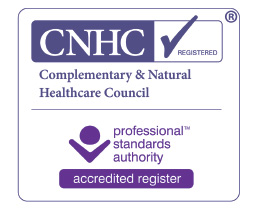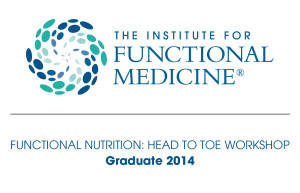Have you ever wondered why tea is less jittery than coffee? Are you looking for a healthy boost to cognitive function that won’t increase cortisol but will actually decrease it? Are you looking for a low-cost supplement that will reduce anxiety and help you sleep? Are you looking for the calm but alert mental focus you need for exams or even meditation whilst protecting your brain in the long term? You may have heard about theanine improving concentration and reducing anxiety, but a growing body of research is revealing further theanine health benefits. In this post I will describe the many known benefits of theanine.
In functional medicine, naturopathy and nutritional therapy we look to the root causes of symptoms. However it can be helpful to also alleviate symptoms in the short term whilst working on the deeper causes. Even if you are generally healthy there will be times when life places many demands on you all at once and there you are with a baby to look after in the night, or a loved one has become ill and needs your care and attention, or your neighbours are making noise at night and keeping you awake, and you still need to get on and do your work, pay the bills and look after the children. This is where a supplement like theanine can be very helpful in the short term as well as for its long-term health benefits.
A Chinese legend has it that Bodhidharma, the first patriarch of the Chan school of Buddhism, cut out his eyelids so he would not fall asleep in meditation, and where he threw his eyelids to the ground was where the first tea plant grew from. It turns out that it is not just the caffeine in tea that has traditionally made it the drink of choice for Buddhist monks looking for a relaxing boost to their focus in meditation.

Theanine is an amino acid which contributes to the pleasant flavour and umami taste of tea, so that its content affects the quality and price of tea leaves (1). Green tea has been drunk for 4700 years (2) and you have probably heard about the polyphenols in green tea that are protective against heart disease, cancer, neurodegenerative diseases like Alzheimer’s and Parkinson’s and may even benefit weight loss (3). You may not have heard as much about theanine which may have some synergistic action together with the polyphenols in green tea (4). Some research indicates that caffeine and theanine work synergistically to improve cognitive function (5) and other research indicates that theanine reduces some of the arousal of caffeine (6) which would explain why tea is less jittery than coffee for most people. Most research looks at averages across a study population and it may well be that the effect when combined with caffeine varies for different individuals, and indeed a few of my clients have actually found green tea to be more jittery than coffee, which I speculate may be down to genetics. Theanine is converted into glutamate (7) and there are known genetic variants that slow down the conversion of stimulatory glutamate into calming GABA that might be at play in these individuals, though I have not tested their genes to find out if this hypothesis might be correct.
Tea leaves are about 1-2% theanine by dry weight and one cup of green tea will contain 8-30mg of theanine (8). Black, white and oolong tea tend to have only a little less theanine than green tea (9). Matcha green tea not only has more of the polyphenol EGCG (10) but being grown in the shade before harvesting also increases the theanine content (11, 12). Since tea high in theanine improves the umami taste and increases the price of the tea perhaps the best natural source to maximise both polyphenol and theanine health benefits would be a high-grade matcha tea. Theanine is also found in the bay bolete mushroom (13) and is also available as a very affordable supplement which can be very helpful if you you are sensitive to caffeine or if you are avoiding caffeine to get your cortisol levels back in balance and to get over burnout.
Theanine comes in two mirror image forms – l-theanine and d-theanine. It is l-theanine that is found in tea and that has been studied extensively and the supplement form is l-theanine, so in this post it is always the l-theanine form that I am referring to. Theanine has been granted GRAS (generally recognised as safe) status by the FDA (14) and huge doses of 4g per kilogram of body weight showed no adverse effects in rats (15). In fact you will see below that theanine protects against toxins and enhances detoxification.
Theanine Health Benefits for the Brain – Anxiety, Depression, Mental Focus, Sleep, Dementia and Addiction
30 minutes after taking 50-200mg of theanine, alpha-waves in the brain are increased, which indicates a state of relaxation, without increasing the theta-waves associated with drowsiness (16, 17). Theanine readily crosses the blood-brain barrier and is best known for reducing anxiety, but also improves learning and memory, increases brain-derived neurotrophic factor (BDNF) to grow new brain cells, is neuroprotective and is even being researched for its potential benefits for ADHD (18).
You can see why this combination may be very helpful for exam time, not only to keep calm and to improve learning and memory in the short term but to protect the brain and to preserve cognitive function in the long term from this period of stress, since acute stress improves memory but chronic stress reduces it (19). Stress hormones increase glucose levels and as the neurons (nerve cells) burn more glucose they create more oxidative stress (20) which is one reason why blood sugar imbalance is associated with Alzheimer’s disease, also referred to as ‘Type 3 diabetes’ (21). The oxidative stress has a beneficial effect on the brain at lower doses due to a hormetic effect, but at higher doses oxidative stress can damage the brain (22). In animal studies theanine increases antioxidants such as glutathione, catalase and superoxide dismutase (23). Theanine protects the brain and memory from the negative effects of stress in rats (24 ) and in mice (25).
One of the ways in which theanine can protect against neurodegenerative conditions such as Alzheimer’s disease is because theanine is an analogue of the amino acid and stimulatory neurotransmitter glutamate and can block glutamate receptors in the brain (26). Although glutamate is important for learning and memory (27) too much of it can overstimulate the neurons and cause what is known as ‘excitotoxicity’ which can lead to neuronal cell death in stroke, hypoglycemia and neurodegenerative diseases including Alzheimer’s and Parkinson’s (28). Excitotoxicity could arise from environmental toxins such as mercury (29, 30), alcohol abuse (31), chronic stress (32), high blood sugar (33), infection (34), inflammation (35, 36) or from brain injury due to physical trauma or stroke (37). However theanine does not have a very strong affinity for glutamate receptors and another way it reduces glutamate production is by reducing the absorption by nerve cells of the amino acid glutamine, from which glutamate is made (38). Theanine also offers some of it’s neuroprotection by activating calming anti-anxiety GABA receptors, at least in mice (39).
Theanine is a safe and natural way to improve sleep by reducing anxiety and can thus reduce the risk of a number of conditions associated with insomnia such as heart disease, depression, diabetes and obesity, without causing drowsiness when taken during the day (40). 200mg during the day and again at night improved sleep in boys with ADHD (41) and it could potentially benefit cognitive function and anxiety in ADHD since animal studies indicate it increases the neurotransmitters dopamine, serotonin, GABA (42) and glycine (43).
The recently discovered ‘glymphatic system’, a lymphatic system for the brain, is activated during sleep when it clears out debris from the brain, including the ß-amyloid that is associated with Alzheimer’s disease (44). Sleep is therefore also important to reduce the risk of Alzheimer’s disease (45 , 46). Theanine also protects cultured human neurons from toxins associated with Parkinson’s disease and may therefore be helpful in reducing Parkinson’s disease symptoms (47). Another toxin that may be a key driver of Parkinson’s disease is dopamine quinone, which can be formed in your brain when there is too much of the neurotransmitter dopamine, and theanine once again is protective by increasing brain glutathione (48). Animal studies show that theanine can protect the brain from the toxic effects of aluminium (49), cadmium (50) and amyloid beta plaque that is associated with Alzheimer’s disease (51). Aluminium toxicity is also associated with Alzheimer’s disease (52).
As well as protecting your neurons, theanine increases brain-derived neurotrophic factor (BDNF) in rats (53) as well as nerve growth factor during the development of the nervous system, thus accelerating brain development (54). The increase in BNDF as well as the action on glutamate receptor may also be behind the potential antipsychotic and antidepressant effects of theanine (55) and some research indicates it reduces symptoms of schizophrenia (56, 57). Post-traumatic stress disorder changes the expression of genes in the hippocampus and amygdala of rats that effect, for example, neurotranmsitter balance and hence the response to stress, and theanine changes the gene expression back for more a more favourable outcome (58). Those of you who have had some genetic testing may be interested to know that one of the genes whose expression is decreased by trauma is MAOA, thus reducing the rate of neurotransmitter breakdown and perhaps contributing to an increased stress response, and that theanine reverses this effect. A 2017 pilot study found that theanine at a dose of 250mg per day reduced symptoms of depression, along with improvements in anxiety, sleep and cognitive function (59) and since we have already seen that theanine increases neurotransmitters and reduces cortisol this should come as no surprise.
Theanine is well-known for boosting cognitive function in the short term but I would just like to remind you of the many ways it can preserve or improve cognitive function in the long term: by reducing stress and protecting the brain from stress, from glutamate excitotoxicity and from other toxins, by increasing BDNF and nerve growth factor to grow new neurons, by improving sleep so that the glymphatic system can effectively clear out debris from the brain, and by increasing the production of anti-oxidants such as glutathione.
Theanine does not appear to be addictive. In fact some research indicates it can be helpful to break addiction (60) though human research is currently lacking.
Theanine for Hormones, Metabolism and Weight Loss
A theanine based drink reduced salivary cortisol three hours later (61). Theanine also reduces the increase in heart rate (62) and blood pressure (63) under stress.
Since high cortisol levels lead to increased central obesity (fat around the middle) (64), could theanine aid weight loss? Perhaps the boost in neurotransmitters could also reduce cravings? Whatever the mechanisms theanine does seem to benefit weight loss, at least in mice (65).
Theanine Health Benefits for the Liver and for Detoxification
Theanine health benefits extend to protect the liver in the case of chronic liver disease and liver injury and theanine also aids in detoxification by increasing glutathione production (8). Glutathione is your main intracellular antioxidant and detoxifying agent and when it acts as an antioxidant it becomes oxidised itself and needs to be recycled (or ‘reduced’) to the active form of glutathione again. Theanine increases this recycling of glutathione as well as providing glutamate to make more glutathione (66). Theanine also increases the production of other key antioxidants such as catalase and superoxide dismutase that help to protect the liver from alcohol (67). The increased glutathione production is one way in which theanine protects the liver from alcohol, but it also increases the activity of enzymes that break down alcohol and the even more toxic acetaldehyde (68) that your body converts alcohol into and that is associated with hangovers (69). Carcinogenic levels of acetaldehyde are also created by a candida overgrowth (70) and some of my clients with fungal overgrowth have found some limited reduction of symptoms from taking theanine.
Theanine Health Benefits for Your heart
Theanine promotes nitric oxide production which dilates the arteries to reduce blood pressure (71) and we have already seen that theanine reduces the blood pressure increase in response to psychological stress and could thus reduce two risk factors for cardiovascular disease, including stroke – stress (72, 73) and high blood pressure (74). If you are taking blood pressure medication theanine could in theory reduce your blood pressure too much so this combination is best avoided. Theanine may reduce lipid peroxidation (the damaging of fats) in the cholesterol carrying LDL particles (75), which is important since oxidised LDL particles are associated with heart disease (76). Theanine inhibits the process of inflammatory cells binding to artery walls that initiates atherosclerosis (77). Ischemic stroke, when the blood supply to part of the brain is reduced, results in damage to the brain by excitotoxicty (78) but taking theanine in the 12 hours after a stroke shows promise as a way to reduce the volume of the brain that is damaged (79). Theanine also has a protective effect on cultured heart muscle cells by increasing production of the antioxidants glutathione, glutathione peroxidase and superoxide dismutase (80).
Theanine health benefits for immune function, allergy and cancer
Theanine enhances immune function and may reduce infections such as colds and flu (81). One of the ways theanine improves immune function is by boosting the Th1 arm of your immune system (82), although for this very same reason some people with autoimmune conditions in which the Th1 arm of the immune system dominates the Th2 arm, theanine might potentially aggravate symptoms.
Theanine is anti-inflammatory (8) and when combined with cysteine in a small pilot study, theanine reduced intestinal inflammation after gastrectomy (83) and has also shown benefit in healing gastric ulcers (84). Theanine combined with cysteine also reduces the inflammation and immune suppression caused by high intensity exercise (85) which may be due to the immune modulating effects of increased glutathione production (86).
Theanine has some anti-cancer activity (87) and can also enhance the effectiveness of the chemotherapy drug doxorubicin whilst reducing side-effects of the medication (7).
Theanine also reduces the release of histamine from mast cells that drives allergic reactions (88) and may also decrease airway inflammation in asthma (89).
Please remember that studies measure averages and do not generally account for individual differences. Some individuals may actually sleep worse after taking theanine and should therefore only take it during the day. You can take 200mg 30 minutes before you need more mental focus or to reduce any expected anxiety and you could take 200mg three times a day for a general boost to cognitive function and mood, as well as all of the other theanine health benefits I have described above. Theanine is likely to be more effective on an empty stomach due to competition for absorption from other amino acids in protein foods.
Have you noticed any theanine health benefits in improving your mood, focus, sleep or in any other way? Let me know in the comments below.
Learn more about my work in London and Totnes, or find out about online consultations.
SIGN UP TO THE NEWSLETTER TO BE NOTIFIED WHEN EACH NEW POST IS RELEASED.
Related posts:
The Low-Fat Fallacy – Saturated Fat Is Good for You – Part 2
The Low-Fat Fallacy – Saturated Fat Is Good for You – Part 3
The Low-Fat Fallacy – Saturated Fat Is Good for You – Part 4
10 Reasons You Need Cholesterol – Part 1






Hello
Thank you for your informative videos and pages.
I have been taking theanine for 6 months now and yes it really does work, but i have to take 400mg each time to be effective, and I take up to 3 times a day.
I am slightly concerned with taking such high dosage, is this something that you have a view on?
Kind regards,
Sook
Hi Sook,
Theanine seems to be very safe even at very high doses, but if you need such high doses I would look into what the underlying causes could be and work with those, as they may also be detrimental to your health in the long term.
Kind regards,
Tom
It’s appropriate time to make some plans for the future and it’s time to be happy. I have read this post and if I could I wish to suggest you few interesting things or suggestions. Maybe you could write next articles referring to this article. I wish to read even more things about it!